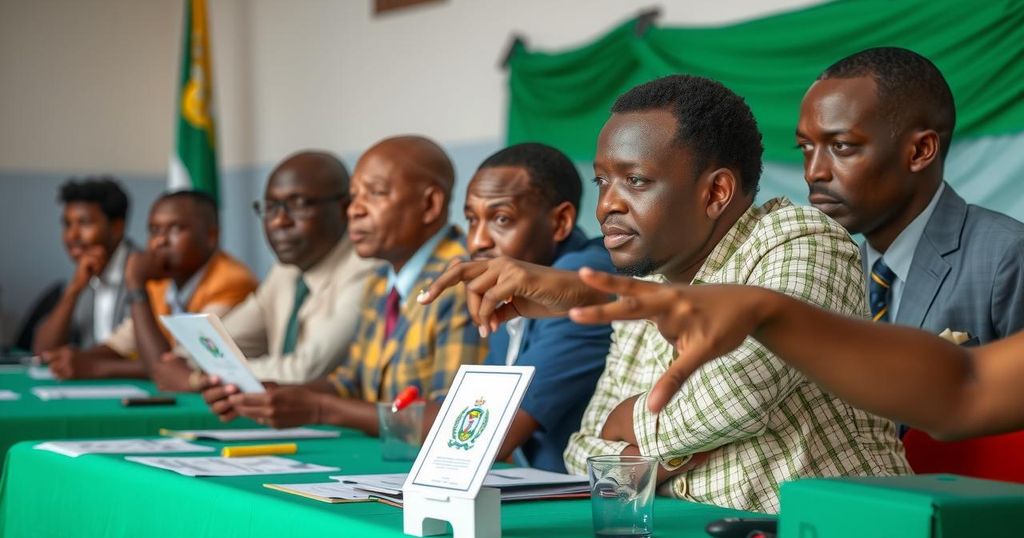World news
2024 ELECTIONS, ABDALLAH SAMBI, AFRICA, AFRICA CENTER FOR STRATEGIC STUDIES, AHMED, AP, ASSOUMANI, AZ, AZALI ASSOUMANI, COMOROS, ELECTIONS, EUROPE, FOR THE RENEWAL OF THE COMOROS, FRANCE, GOVERNANCE, GOVERNMENT, GRANDE COMORE, INDIAN OCEAN, JUWA, JUWA PARTY, MADAGASCAR, MITSOUDJE, MITSOUDJÉ, PRESIDENTIAL ELECTION, VOTER TURNOUT
Ethan Kim
0 Comments
Comoros Conducts Controversial Parliamentary Elections Amid Opposition Boycotts
Comoros held a parliamentary election marked by opposition boycotts amid allegations of authoritarianism under President Assoumani. Approximately 330,000 voters were registered, although low turnout was expected due to public disaffection. Previous elections have faced criticism for lack of fairness, complicating the country’s democratic context.
On Sunday, Comoros conducted a parliamentary election characterized by a boycott from several opposition groups. These parties, led by figures like former President Ahmed Abdallah Sambi, have raised serious concerns regarding the democratic legitimacy of the electoral process, citing an increasingly authoritarian approach by President Azali Assoumani’s administration. This election is set to fill the 33 seats in the legislature, as approximately 330,000 individuals are registered to vote in a nation with a population of about 850,000, although low voter turnout is anticipated due to widespread disillusionment with the political climate.
President Assoumani’s ruling party, the Convention for the Renewal of the Comoros, previously secured 20 out of the 24 contested seats during the 2020 parliamentary election, which was denounced by opposition groups as a fraudulent “masquerade.” Despite notable climate disturbances, including Tropical Cyclone Dikeledi, the elections proceeded as planned. The political history of Comoros, marred by military coups and allegations of electoral misconduct, presents a critical backdrop to this contentious election.
The political landscape of Comoros has been turbulent since its independence from France in 1975, with a series of military coups shaping its governance. President Azali Assoumani, who initially seized power in 1999, has been the subject of considerable scrutiny following a series of constitutional amendments that facilitated his extended rule. The opposition’s ongoing allegations of election fraud highlight a deep-seated distrust in governmental integrity and democracy. The latest parliamentary elections reflect these underlying tensions, showcasing the challenges facing political pluralism and civic engagement in Comoros.
The parliamentary election in Comoros has been largely overshadowed by opposition boycotts and allegations of authoritarian rule under President Assoumani. With significant disenchantment within the electorate, the election’s integrity remains in question. As Comoros navigates its political future amidst storms—both literal and metaphorical—the response from the public and the international community may catalyze calls for reform and greater democratic transparency.
Original Source: apnews.com




Post Comment